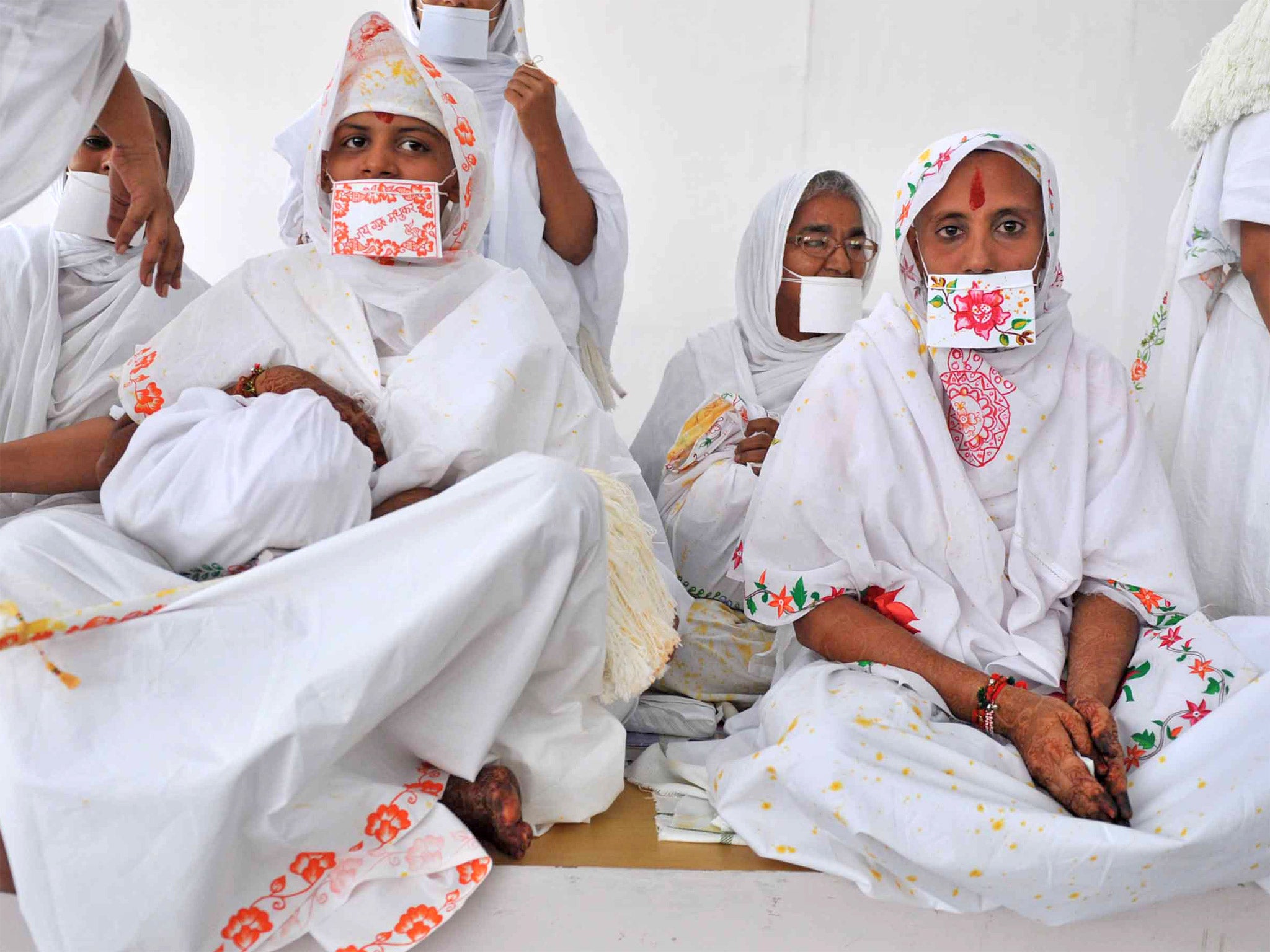The vegetarian town: They wouldn’t hurt a fly but the Jains upset Palitana with meat-free plea
Monks say that non-vegetarian food should not be permitted for sale in Palitana, but Muslims say the demands amount to discrimination

Your support helps us to tell the story
From reproductive rights to climate change to Big Tech, The Independent is on the ground when the story is developing. Whether it's investigating the financials of Elon Musk's pro-Trump PAC or producing our latest documentary, 'The A Word', which shines a light on the American women fighting for reproductive rights, we know how important it is to parse out the facts from the messaging.
At such a critical moment in US history, we need reporters on the ground. Your donation allows us to keep sending journalists to speak to both sides of the story.
The Independent is trusted by Americans across the entire political spectrum. And unlike many other quality news outlets, we choose not to lock Americans out of our reporting and analysis with paywalls. We believe quality journalism should be available to everyone, paid for by those who can afford it.
Your support makes all the difference.For hundreds of years, followers of the Jain religion have been lured to the quiet town of Palitana. In the adjoining hills of Shatrunjaya are located countless sacred temples and it is said that every Jain should make a pilgrimage to them once in their life.
But in recent weeks Palitana, located in the western Indian state of Gujarat, has become the site of an unlikely controversy after Jain monks launched a hunger strike – threatening to fast unto death – and demanding the town be declared a vegetarian zone.
The monks say that non-vegetarian food – in which they include eggs – should not be permitted for sale or storage anywhere in Palitana. They have also called for a ban on the ritual slaughter of animals and want an estimated 260 butchers’ shops to be closed.
But local Muslims say the demands by the monks discriminate against them. Most Muslims eat meat and eggs as part of their diet and say it is essential they are able to offer sacrifice during specific religious holidays.
The monks have for now called off their hunger strike following an assurance by local politicians and officials that the matter would be looked into promptly. But the controversy has not gone away and the monks have said they will restart the hunger strike if their demands are not met. “Every religion has its own sacred places, what you call holy cities or pilgrimage sites. Jains too, have a lot of sacred places, but Palitana is the most important,” Virag Sagar Maharaj, the monk who is leading the protests, told The Independent.
He claimed the founder of the Jain religion, Adinath, had visited Palitana millions of times and climbed into the hills. He added: “Now, with his divine presence here in Palitana and that of several other Jain saints, how do you expect us to tolerate violence in this city?”
Jainism is one of India’s oldest religions and its adherents today total about five million. Followers of the religion are supposed to adopt a strictly vegetarian diet that also excludes onions, garlic and root vegetables. All are required to follow the principle of non-violence.
In Palitana, as elsewhere, devout Jains will often carry peacock feathers with them when they walk to sweep ants and insects from their path, so as not to harm them. In India, Jains have the highest rate of literacy of any religion and its members are often successful business people and traders.
Officials say that Muslims are about 20-25 per cent of Palitana’s population of 65,000. Reports suggest that there are also considerable numbers of non-Muslims who would also like to eat meat if they were permitted to do so.
Leaders of the local Muslim community have held their own meeting with officials to try and ensure meat-eating and slaughter of animals is not banned in Palitana.
“If we don’t offer sacrifice we will not remain Muslims,” Razaq Ismail Saiyad, president of a Muslim association in Palitana, told the Indian Express newspaper.
Efforts by the Jain community to have Palitana declared hinsa-mukt, or violence-free, date back a number of years. They have even offered financial compensation to restaurants and food vendors who sell meat or eggs to change their trade.
In 1999, local officials declared that a one-and-a-half mile stretch of road leading towards the temples should be made a vegetarian-only zone. Pravin Solanki, a government official, said the municipal authority was discussing whether to extend the zone. Mr Maharaj, the monk, said local officials had given assurances they would support his demand: “If this doesn’t happen we will sit on hunger strike.”
Join our commenting forum
Join thought-provoking conversations, follow other Independent readers and see their replies
Comments